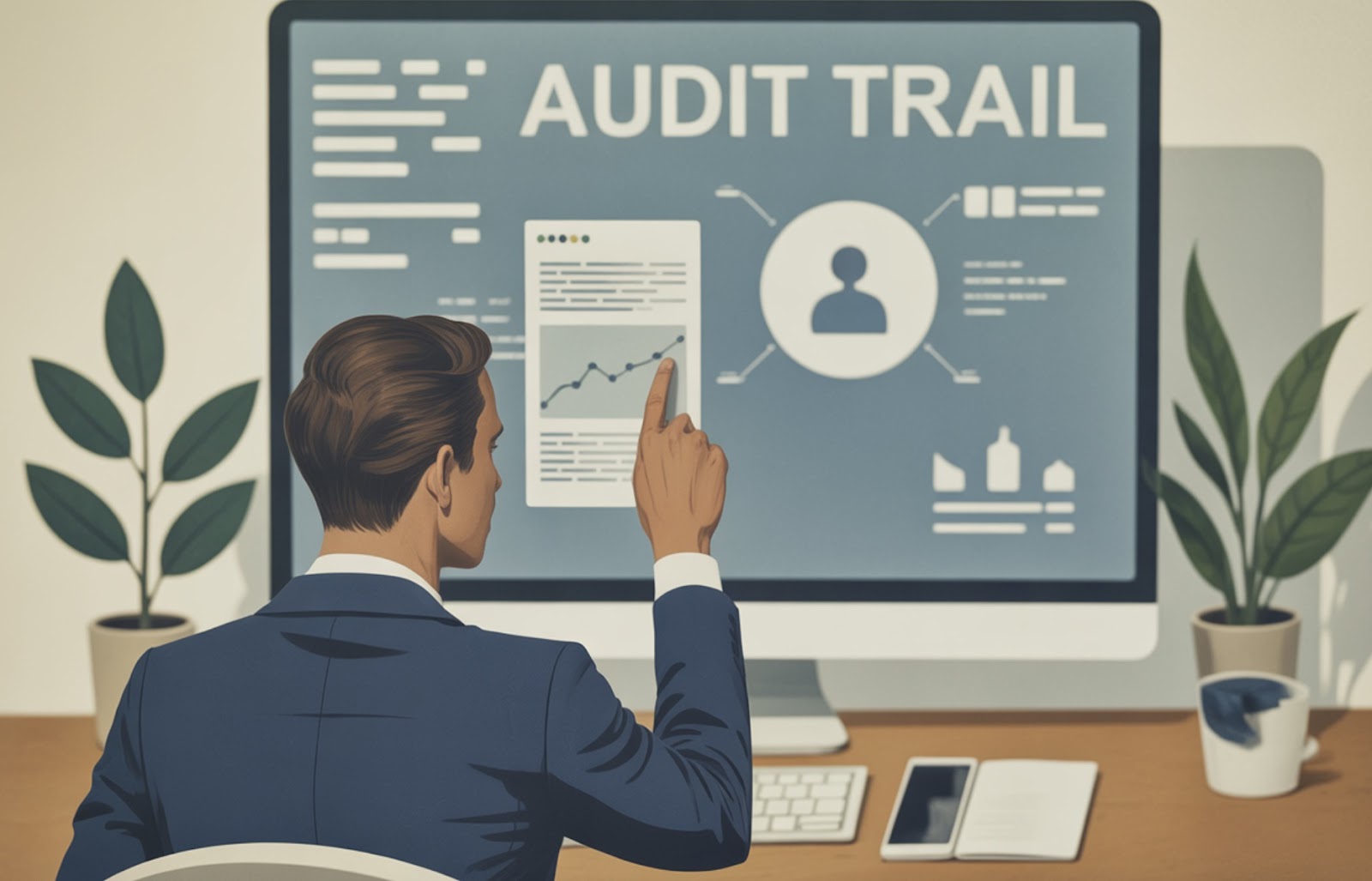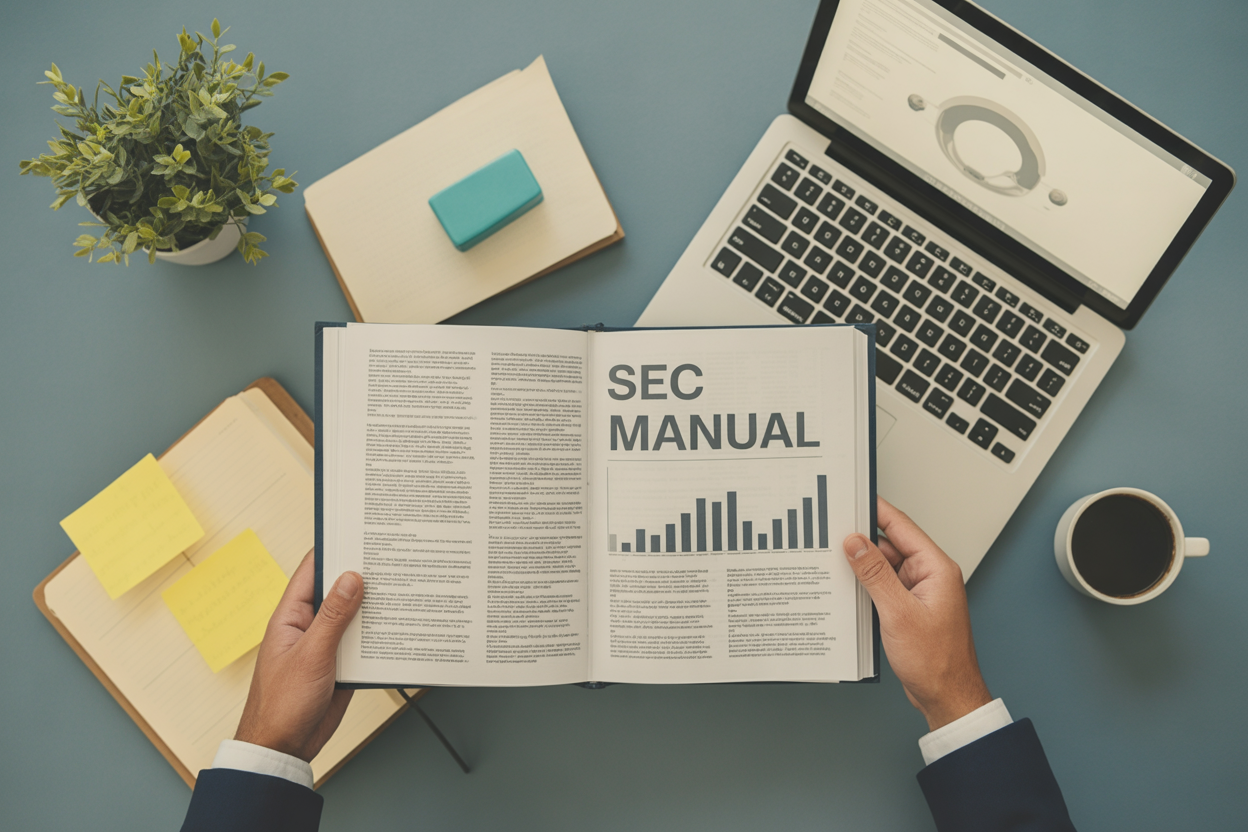Over $600 million in penalties across more than 70 financial institutions. That's what the SEC imposed in fiscal year 2024 alone for recordkeeping violations. And that's just the tip of the iceberg. Since late 2021, the infamous "off-channel communications" sweep has slapped over 100 firms with fines exceeding $2 billion for recordkeeping failures.
With over 3,300 registered brokerage firms now under the SEC's watchful eye, the question isn't if you'll be examined, but when—and whether your records will pass muster. Keep reading to discover exactly what Rule 17a-4 requires, how recent regulatory changes affect your compliance approach, and tips to avoid joining the growing list of firms paying million-dollar penalties.
What is SEC Rule 17a-4 and Why Should You Care?
SEC Rule 17a-4 spells out how broker-dealers have to preserve and maintain business records and communications for regulators. Simply put: while Rule 17a-3 covers what types of records you need to create, Rule 17a-4 sets the rules for how long you need to keep them, and in what format.
So why does this matter? Because, without proper recordkeeping, the whole system regulators rely on to oversee financial markets breaks down. Organizations like the SEC, FINRA, and state regulators have to be able to access complete, unaltered records so they can run audits, investigations, and exams. When records go missing—or get tampered with—it doesn’t just slow down enforcement. It can put investors at risk.
The SEC has stressed time and again that failing to preserve records—such as when employees use personal texting apps without saving messages—can rob regulators of crucial evidence in their investigations. At its heart, Rule 17a-4 is all about protecting market integrity: it ensures trading records, emails, and customer communications are always available so fraud can be detected, disputes can be resolved, and firms can be held accountable.
At Luthor, we understand how tough these challenges can be. That’s why our AI-driven compliance platform is fully 17a-4 compliant. We make it easier for your marketing and compliance teams to be confident that all your public-facing content meets regulatory demands and that you’re keeping complete records that meet the SEC’s strict standards.
Key Regulatory Requirements for Broker-Dealers Registered with the SEC
Broker-dealers have significant recordkeeping workloads. According to Section 17(a) of the Exchange Act, as well as the SEC’s books-and-records rules, firms must “make, keep, and furnish” certain records. And FINRA Rule 4511 doubles down, requiring members to maintain all books and records in line with SEC rules.
In practice, this means carefully retaining things like trade blotters, emails, instant messages, customer account documents, financial statements, compliance records, and much more. Rule 17a-4 also sets minimum retention periods for these documents—from three years, all the way up to the lifetime of your business—plus rules about keeping them accessible and producing them quickly if regulators ask.
And until recently, keeping up with these rules often meant using specialized, non-erasable storage technology for your electronic records. But regardless of the storage tools you use, meeting Rule 17a-4 requirements isn’t a choice—it’s the law. Falling short can mean fines, sanctions, or even losing your SEC registration.
Key Provisions and Retention Periods Under Rule 17a-4

Rule 17a-4 forms the backbone of broker-dealer recordkeeping programs by establishing what records must be preserved and for how long. Key provisions include:
- General 6-Year Record Retention: Foundational records like trade ledgers, general ledgers, and position records must be kept for at least six years, with the first two years readily accessible. Customer account records require retention for six years after closure.
- General 3-Year Record Retention: Most other records have a 3-year minimum retention, with the first 2 years readily accessible. This includes communications, trade confirmations, canceled checks, bills, and compliance manuals.
- Lifetime Records: Corporate governance documents like partnership articles, articles of incorporation, minute books, and regulatory registration forms must be kept for the life of the firm.
- Electronic Storage Requirements: These guarantee electronic records remain tamper-proof and reproducible. Traditionally this meant using WORM (Write-Once-Read-Many) media, but since the 2023 amendments there is more flexibility.
- Prompt Access and Production: Records have to be organized and indexed for prompt access and examination by regulators.
These provisions make sure that records remain available and authentic for regulators and customers long after transactions occur.
Required Records and Retention Timeframes
Knowing which records to keep and for how long is important for compliance with Rule 17a-4:
- Trade Blotters and Ledgers (6 Years): Daily blotters, general ledgers, and similar accounting records must be kept for at least six years, with the first two years readily accessible.
- Customer Account Records (6 Years After Closure): Account forms, agreements, and cards require retention for 6 years after closure.
- Communications (3 Years): All business-related emails, chats, text messages, social media posts, advertisements, sales scripts, and recorded calls must be preserved for at least three years.
- Trade Confirmations and Statements (3 Years): Customer confirmations, account statements, and similar client communications typically have a 3-year retention requirement.
- Financial Records (3 Years): Check books, bank statements, canceled checks, bills, trial balances, and net capital computations must be stored for 3 years.
- Organizational Documents (Life of Firm): Partnership documents, incorporation papers, minute books, and registration forms must be kept for the life of the enterprise.
- Personnel Records (Varied): Employment applications, fingerprints, and disciplinary actions typically require retention for 3 years after termination. Written supervisory procedures need preservation for 3 years after being superseded.
These are minimum periods—many firms choose longer retention as a risk mitigation strategy. Records must be kept in an easily accessible manner, allowing quick retrieval during regulatory examinations.
Electronic Recordkeeping System Requirements and WORM Compliance
Most broker-dealers now rely on electronic systems for storing records. For decades, SEC Rule 17a-4(f) required the use of "non-rewriteable, non-erasable" WORM storage for all electronic records. This typically meant maintaining specialized compliance archives that prevented modification or deletion of stored data.
In late 2022, the SEC modernized these requirements. Effective May 2023, broker-dealers can choose between two compliant approaches:
- WORM Storage: Firms can continue using traditional WORM technology, where records are locked in an unalterable format for their entire retention period.
- Audit-Trail Alternative: Alternatively, firms can implement systems that maintain a complete audit trail for any modifications. This allows records to be editable as long as every change is tracked and original content can be reconstructed. This change permits firms to leverage existing business systems with audit logging capabilities, potentially reducing compliance costs.
Additional requirements include ensuring systems can download and transfer records to regulators in a reasonable format and preserving records for their full retention period. The SEC eliminated previous notification requirements to streamline implementation but maintained that firms must arrange for regulatory access—either through a third-party service or by designating an executive officer who can provide records upon demand.
A compliant electronic recordkeeping system must prevent unauthorized erasure of records, maintain them for the required timeframe, provide redundancy or backup, and allow prompt production to examiners.
Audit Trail Requirements for Records Maintained Electronically

If choosing the audit-trail alternative over WORM storage, firms must meet specific requirements to make sure that original records are properly preserved. The electronic system must capture these details for every stored record:
- All Modifications or Deletions: Every edit or deletion must be logged, with nothing removable without leaving a trace.
- Timestamp of Each Change: The date and time of every creation, modification, or deletion must be recorded, creating a chronological audit log.
- User Identity: The system should log who performed each action, whether individual or system account.
- Preservation of Original Content: The audit trail must contain information necessary to recreate the original record exactly as it existed before modifications.
These provisions set a "specific and testable outcome" for electronic record systems: either no changes occur (WORM) or all changes are fully documented to maintain data integrity. Regulators should be able to request a record and verify its authenticity through the audit log. Firms may use WORM for some records and audit-trail systems for others, provided each record meets one of the two methods.
Luthor's platform is designed to be fully 17a-4 compliant, supporting both WORM and audit-trail approaches while continuously scanning your marketing content to catch potential regulatory issues before they become problems.
Final Thoughts
Recent enforcement actions have transformed SEC Rule 17a-4 from a background technical requirement into a cornerstone of regulatory compliance. With over $2 billion in fines issued since 2021, the financial impact of non-compliance is substantial. But beyond avoiding penalties, strong recordkeeping practices offer tangible business benefits—smoother audits, faster dispute resolution, and enhanced client trust.
At Luthor, we understand that. That’s why our 17a-4 compliant AI platform continuously scans your marketing content across websites, emails, social media, and ads to identify potential regulatory issues before they become problems. By automating compliance monitoring while maintaining a complete and defensible record of all marketing communications, Luthor acts as a force multiplier for your compliance team, reducing risk, effort, and time spent on manual reviews.
Ready to strengthen your recordkeeping compliance while streamlining your marketing review process? Book a demo today to see how Luthor can help your organization maintain regulatory compliance more efficiently and effectively.




